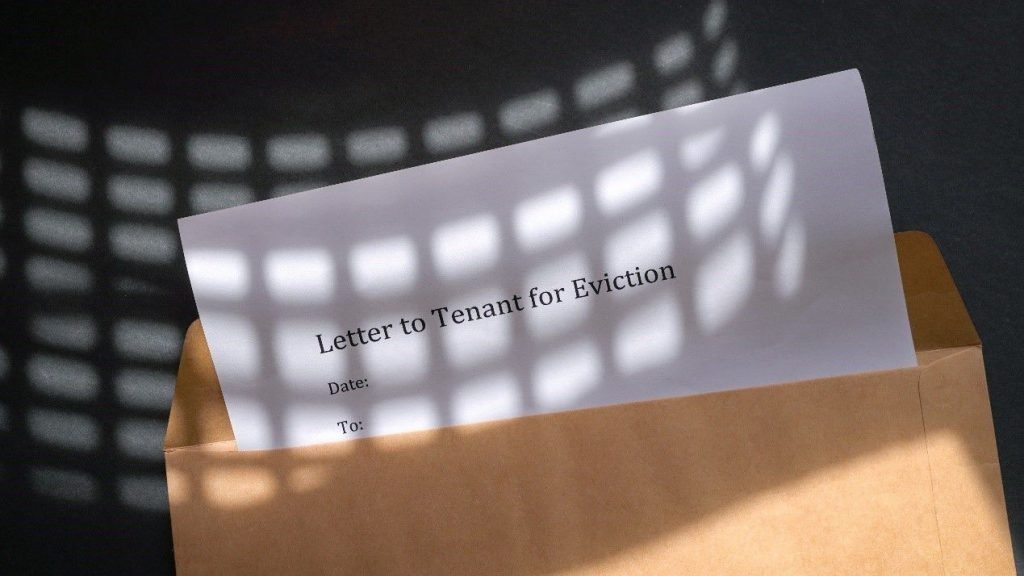Tenant eviction is a mind-straining process and something most landlords would rather not experience. However, the reality is that tenant evictions do occur.
If there are not handled quickly, the property owner risks seeing their property value decline due to lost rental income and damages caused by the tenant.
In this article, we’ve compiled five important steps to help you better understand the eviction process in Malaysia.
A Landlord’s Guide to Tenant Eviction in Malaysia

Step 1: Have A Well-Written Tenancy Agreement
A tenancy agreement is a legal contract between a landlord and their tenant. It outlines the duties and obligations of both the landlord and tenant and provides detailed descriptions of the rented property, furniture, and other amenities. Disputes often arise when important scenarios and issues aren’t covered in the tenancy agreement.
Therefore, landlords are advised to hire a lawyer to draft the tenancy agreement to ensure the document does not miss out any important details and that there is minimal room for misunderstanding.
Potential tenants can also consult their lawyer to review the agreement and make any changes before signing.
Step 2: Have A Valid Reason For Eviction
Generally, landlords are not allowed to evict a tenant unless they have a valid reason. Here are three examples:
- Failing to pay rent
- Causing major damage to the property
- Breach of the tenancy agreement, for example, bringing in pets or subletting your property
Step 3: Try To Reason With Your Tenants
Before deciding to evict your tenant, you should first attempt to resolve the problem at hand peacefully. Try to reason with your tenant and discuss alternative solutions best suited for both parties.
Also, you may want to hold your discussion in a public area. That way, there is a lesser chance of either of you causing a scene.
Read More: Comparing Property Agents in Malaysia: Agent vs Negotiator
Step 4: Give Out An Eviction Notice
An eviction notice informs a tenant that they are being evicted and must leave the rental property. It should include a list of the reasons why the tenant is being evicted as well as a deadline.
The deadline will indicate when the tenant should settle their outstanding payments or when they should pack up and move out.
Step 5: Evict the Tenant
This step is where the eviction process begins. The tenant will be provided with a grace period to carry out all the necessary handovers. This includes returning the property’s keys, clearing outstanding rent payments, packing their belongings and making plans to leave.
A landlord can file an eviction order in court if the tenant refuses or fails to leave the premises after the notice period ends.
The eviction order against the tenant will include the following:
- Recovery and possession of the property along with all possessions belonging to the landlord
- All outstanding rental payments
- Double rental payments if the tenant remains after the due date
Read More: A Complete Guide to Quit Rent, Parcel Rent and Assessment
Can a Tenant Sue a Landlord In Return?

We know that a landlord can take legal action against a tenant. However, there are several situations where a tenant can sue a landlord as well.
Here are three examples:
- Suppose the landlord breaches the terms of the tenancy agreement. In that case, the tenant may sue the landlord to make them fulfil the terms of the tenancy agreement or to recover any cost, expenses or damages incurred.
- Should the landlord unlawfully terminate the tenancy agreement, the tenant may sue the landlord to recover any deposits paid and any damages resulting from the unlawful termination of the tenancy agreement.
- Suppose a landlord threatens to force their tenant to vacate the premises. The tenant may apply for an injunction to prevent them from doing so and claim for any damages that may occur, such as the loss of personal belongings.
Remember not to settle disputes with your tenant on your own. Consult a law firm if you choose to take legal action against a difficult tenant.
Selecting Quality Tenants with Rumah-i
As previously mentioned, tenant eviction is a messy process and one most landlords would rather avoid. One way landlords can avoid tenant eviction is by checking the background of potential tenants. With Rumah-i’s credit assessment feature, landlords can easily check their tenant’s credit scores, as well as their risk grades.
If you’re interested in successfully renting out your properties, discover how Rumah-i’s comprehensive property management services can help streamline the renting process.




